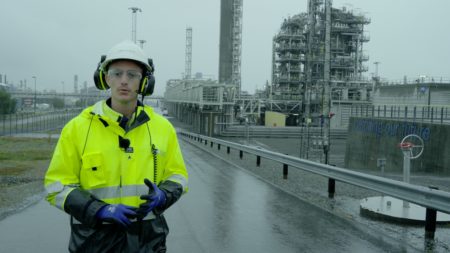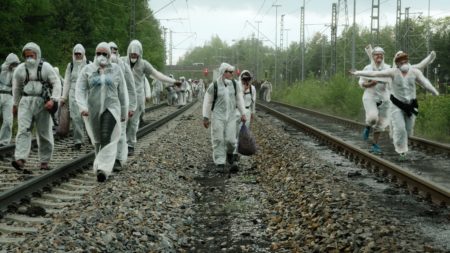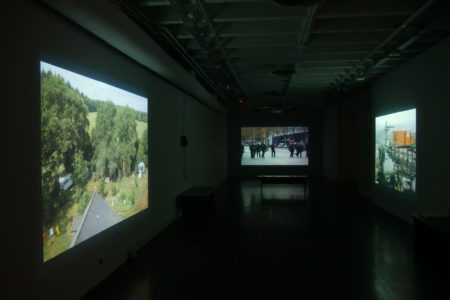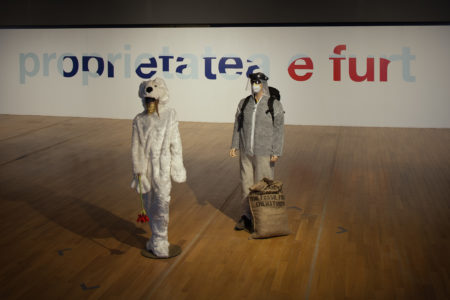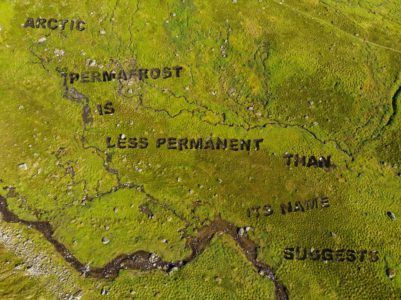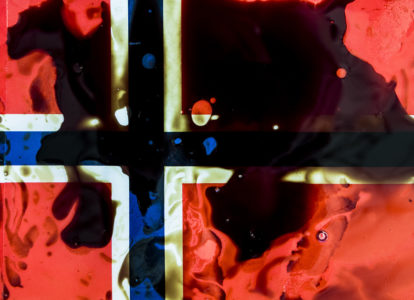Workshop XII, Oliver Ressler, 10 September 2020
Oliver Ressler deals with alternatives to capitalism, the global economy, migration and resistance. His focus on the climate crisis goes back to his 1996 installation, 100 Years of Greenhouse Effect, inspired by Swedish scientist Svante Arrhenius’ (1859-1927) writings on global warming as well as more recent work on sustainable development.
Increasingly interested in the climate movement and its civil disobedience actions, he began to document the protest activities. Everything’s coming together while everything’s falling apart (2016-2020) is a 6-channel video installation focused on direct action and how such protestsare being organized. His work also aims to counteract the dominant media coverage, which presents isolated incidents rather than a global, long-term movement. Carbon and Captivity (2020), about the Technology Centre Mongstad (TCM) discusses carbon capture and storage (CCS), a technology the government of Norway and petroleum corporations try to establish as publicly subsidised climate technology.
Ernst Logar then asks Oliver Ressler about his Oil Spill Flag (2020), a photographic representation of spilt crude oil on the Norwegian flag for his installation on the flag-pole in front of Tromsø Center for Contemporary Art. Oil Spill Flag caused a scandal and was stolen twice, first by Gunnar Nerdrum, a former Supreme Court of Norway lawyer, who confessed he stole it because he couldn’t bear the smearing of the national symbol. While making Norway prosperous, Norway’s oil consumption contributes to the destruction of people’s livelihood in the Global South. This can be considered ‘climate racism’. ‘We’ (in the West) get the benefits, while the people from the extraction sites or impoverished communities in the Global South don’t.
Oliver Ressler sees his works as tools to inform and help people to mobilise. Indeed, his films are used in activist contexts and available online, in addition to being shown in art spaces. He does not see climate change as related to a lack of knowledge which impedes people’s ability to make critical connections. For him, it is an economic issue more than a psychological one, it is a question of capitalism and power. He believes that the only option to work towards change is to be active on the street. We should contribute to making the existing movement stronger.
capitalism I Svante Arrhenius I climate movement I civil disobedience I Norway I climate racism I climate change I power
